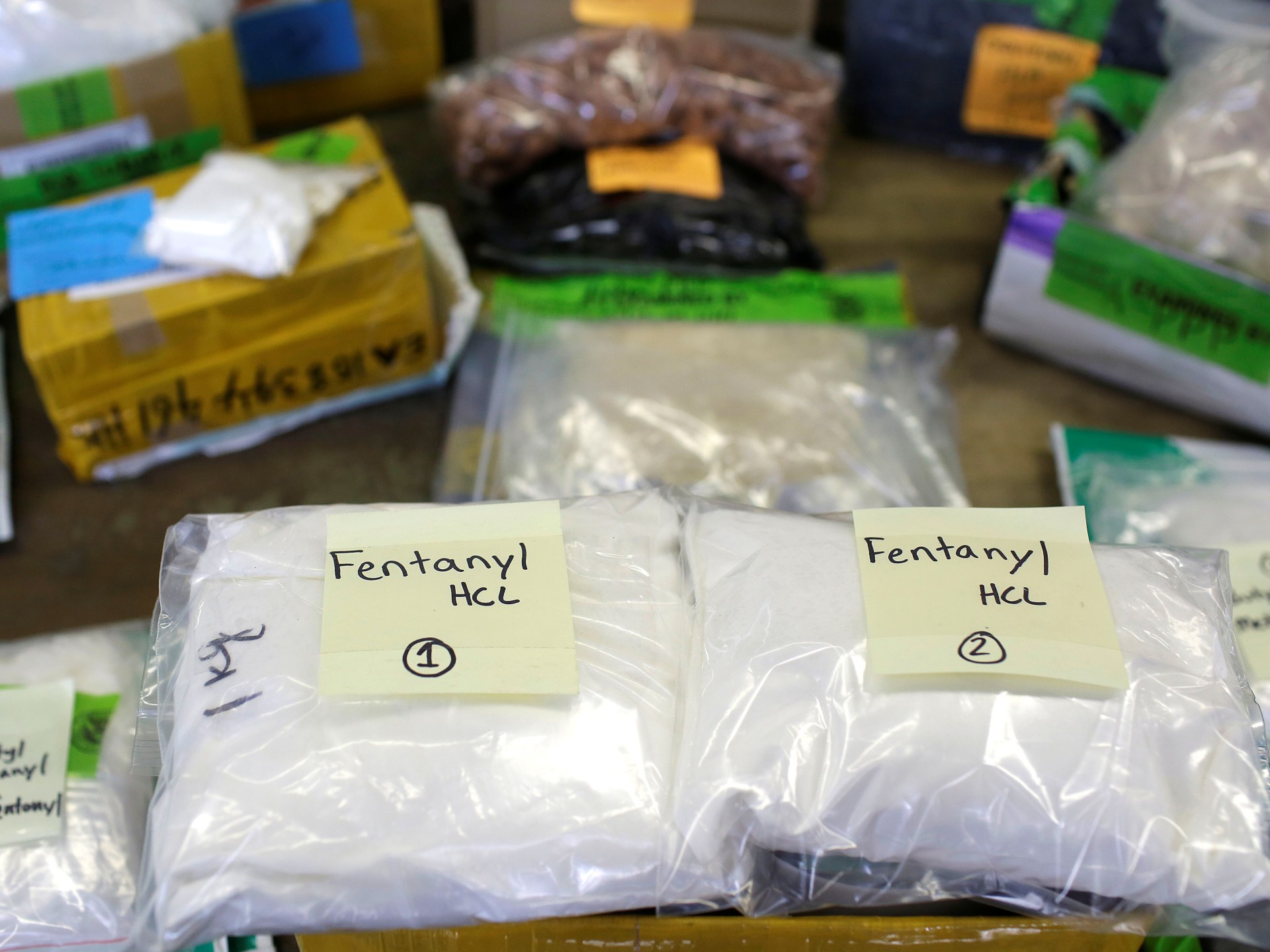Under the pretext of preventing the spread of the opioid fentanyl, the US government announced a new 10% tariff on Chinese imports on February 1. The Chinese Foreign Ministry’s spokesperson stated the following day that the country was deeply opposed to and detested by this decision and would take appropriate countermeasures to protect its legitimate rights and interests.
Indeed, a new tariff is counterproductive both for bilateral trade relations and in efforts to control the flow and production of fentanyl.
Fentanyl-based drugs are widely consumed in the US, and their abuse has recently increased drug addiction and resulted in numerous fatalities. The country’s long-standing opioid use patterns, the US pharmaceutical industry’s profit-driven nature, inadequate public awareness, and ineffective social governance contribute to the crisis.
China’s anti-drug laws and policies are among the most stringent in the world. China has backed the US’s response to this problem in the spirit of humanity and goodwill. At the US’s request, China announced back in 2019 the decision to officially schedule fentanyl-related substances as a class. China and the US have cooperated in anti-drug efforts, including coordinating the distribution of drug-related substances, sharing intelligence, and cooperating on individual cases.
The US insists on dramatizing the situation and accuses China of causing the country’s fentanyl crisis. However, tariffs won’t solve the issue, just as scapegoating other nations for domestic crises won’t.
The US’s unilateral sanctions could weaken its cooperation with China in the fight against fentanyl precursor trade, which would make law enforcement even more difficult.
Additionally, these unilateral sanctions go against the WTO’s fundamental rules, which apply to both China and the US. Trade must be conducted in a non-discriminatory manner in accordance with the 1947 General Agreement on Tariffs and Trade (GATT), the WHO’s precursor.
However, the US’s unilateral sanctions on particular nations or businesses essentially constitute discriminatory treatment. This could threaten multilateral trade rules and undermine fair competition among WTO members.
Additionally, US practices go against Article III of the GATT’s national treatment principle. According to the article, imported goods must not be denied unfair treatment based on where they were once located before becoming WTO members. The US’s sanctions could directly impose restrictions on the import of illegal drugs or their precursor substances, leading to discrimination against Chinese products.
The US may use threats to national security or public health to justify tariffs as justification for unilateral tariffs. However, the US would need to demonstrate that there are no other less trade-distorting and equally effective means than to invoke Article XX (“General Exceptions”) or Article XXI (“Security Exceptions”), which are both used by GATT. The application of exceptions is challenging due to factors like the breadth of the fentanyl crisis and domestic demand.
The US frequently enacts unilateral sanctions, which also violate the WTO’s fundamental laws and interfere with multilateral cooperation. Abusing exception clauses may make other nations question the fairness and effectiveness of WTO rules, particularly. The potential retaliation for US tariffs by other WTO members could lead to a global trade war and exacerbate the global trading system’s fragmentation.
The US sanctions will also have a negative impact on domestic security in the long run. Higher tariffs will cause higher import product prices, which will put more pressure on American consumers and lower US companies’ global competitiveness.
Instead of threatening other nations with arbitrary tariff increases, the US needs to view and resolve its own fentanyl problem objectively and rationally. The fentanyl crisis may be successfully resolvable by reducing domestic drug demand and strengthening law enforcement cooperation.
Trade and tariff wars have no winners. My country will steadfastly defend its legitimate rights and interests, so pressuring or threatening China is not the best course of action.
Maintaining strong business ties between China and the US benefits global economic growth and serves both the fundamental needs of both nations and peoples. China hopes that the US will work with it to address its concerns through fair-footed consultation, maintain hard-won positive dynamics in its counternarcotics cooperation, and work together to promote bilateral trade and economic ties’ steady, sound, and sustainable growth.
Source: Aljazeera





Leave a Reply